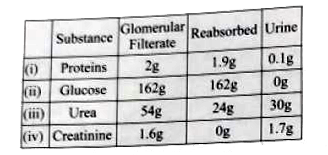Creatinine is formed by -
Urea
Uric acid
Breakdown of creatine phosphate in muscle
Kidney
Step-by-Step Solution:
1. Understanding Creatinine: Creatinine is a chemical compound that is a waste product formed in the body. It is important to know its origin to understand its role in excretion.
2. Source of Creatinine: Creatinine is formed from the breakdown of creatine phosphate. Creatine phosphate is a compound found in muscle tissues and is involved in energy production during muscle contraction.
3. Process of Formation: When muscles use energy, creatine phosphate is broken down. This breakdown process leads to the production of creatinine.
4. Release into Blood: Once formed, creatinine is released into the bloodstream. It circulates in the blood until it reaches the kidneys.
5. Kidney Filtration: The kidneys filter creatinine from the blood. They play a crucial role in removing excess creatinine from the body, which is then excreted in urine.
6. Clinical Significance: The concentration of creatinine in the blood can indicate kidney function. Normal levels are approximately 1.2 mg/dL for females and 1.4 mg/dL for males. Elevated levels may suggest impaired kidney function or chronic kidney disease.
Similar Questions
Knowledge Check
Questa form plain is formed by
AThe sand particleBThe resistant strata standing as inter stream ridge with broad low hands.CThe wave actionDWind actionCreatinine is not produced by
AChildrenBPregnant womenCFasting personsDHealthy males
Glucose is completely reabsorbed
B . Urea is partially reabsorbed
C . Proteins are secreted into urine
D . Creatinine is secreted into urine
Which of the following options , in view of above statements is correct ?A(A) , (C ) and (D)B(A) , (B) and (C )C(B) , (C ) and (D)D(A) , (B) and (D )
If triangles are formed by joining the vertices of a cube then number of equilateral triangles formed is
View SolutionHippuric acid, creatinine and ketones are added to urine through
View SolutionCarboxylic acid is formed by the hydrolysis of an addition compound formed by reaction of Grignard's reagent with
View SolutionAssertion A : In dializer the plasma proteins of the blood, cannot be filtered but molecules like urea, uric acid, creatinine and ions can be filtered
Reason R: The cellophane membrane used in dializer is permeable to macromolecules but impermeable to micromolecules
View SolutionPollenkit is formed form
View Solution
